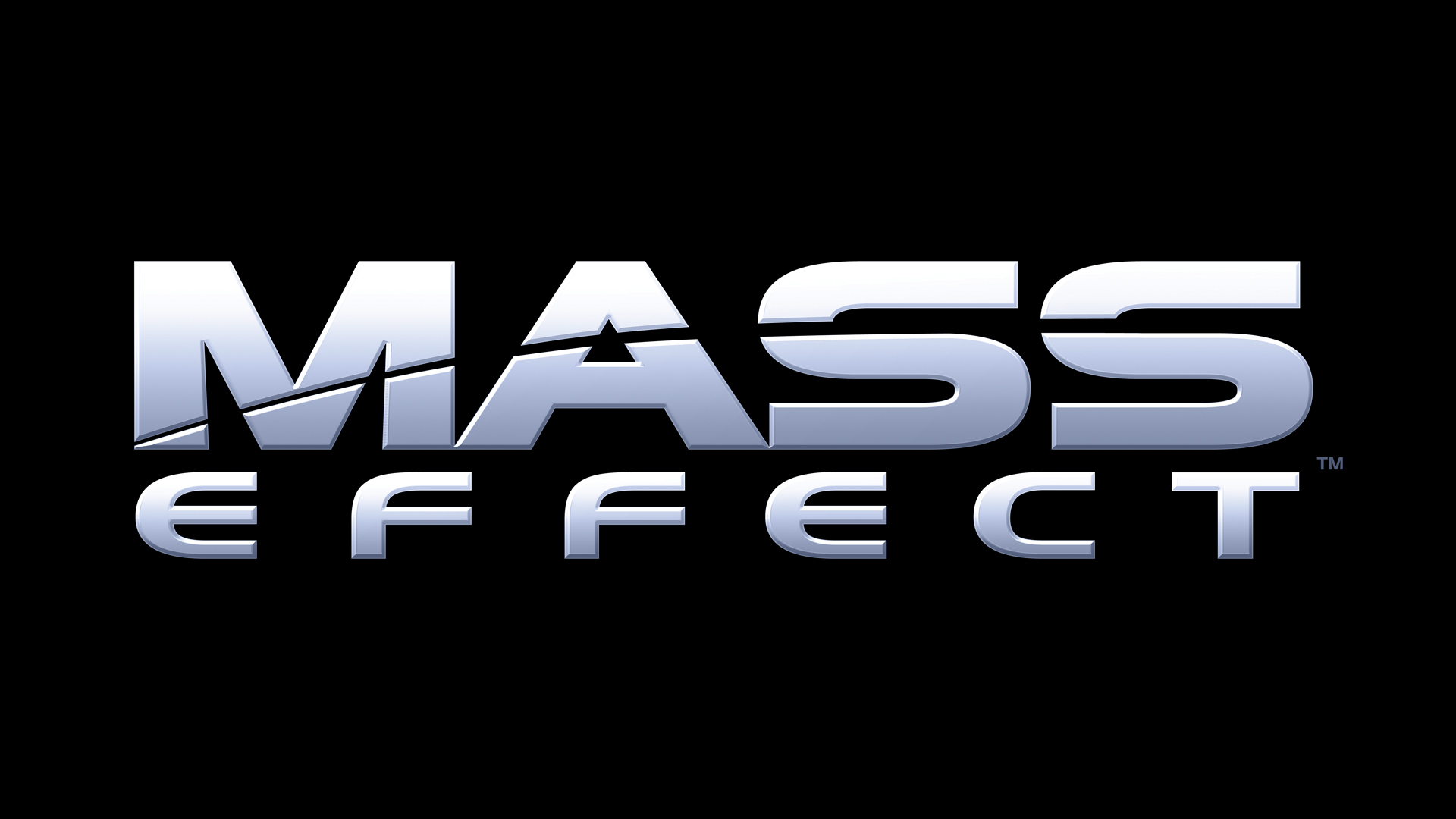Introduction from Aaryn Flynn, Studio GM, BioWare Edmonton & Montréal
When I think of us making the next Mass Effect game, my head spins. In some ways, things have changed greatly in the past few years: we wrapped up the Mass Effect Trilogy (an almost 10-year endeavor), we adopted new technology in the Frostbite engine, and fans have new consoles to enjoy. Luckily for me, I get to work with experienced and talented people who love Mass Effect as much as I do.
These developers have hard-earned industry experience matched by ambition to go further than we ever have before. Bust most all, they’re people who understand that no matter what changes, stories are timeless, and a great story needs to be at the heart of the next Mass Effect game.
With that, allow me to introduce you to just some of the lead developers bringing the next Mass Effect game to life.
Aaryn
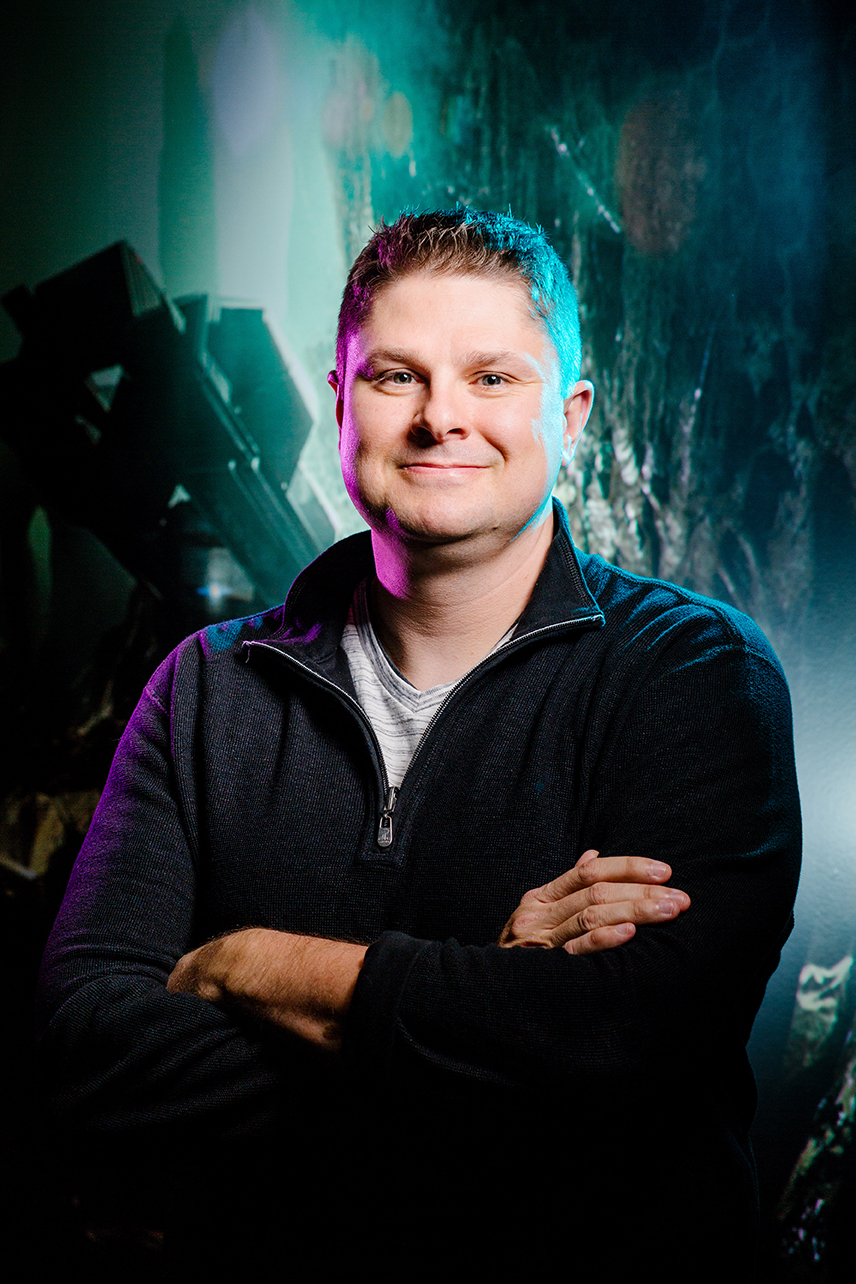 Chris Wynn, Senior Development Director (@The1Wynn)
Chris Wynn, Senior Development Director (@The1Wynn)
Great ideas can come from anywhere, and Chris Wynn’s team knows it. Since joining BioWare as the senior development director for the next Mass Effect in 2013, Wynn has worked tirelessly to reinforce a culture of creativity and openness at the Montréal studio.
“It’s about being humble on the leadership team and accepting that everybody has an ability to have a great idea,” Wynn says. “It’s about ensuring you have a culture where the best idea wins, and everyone has the ability and is welcome to contribute.”
This is especially important for a franchise as well loved and established as Mass Effect, he says, where teams can sometimes be hesitant to take new risks. As a fan of the series, Wynn says it’s important for him to maintain the core of what made Mass Effect great, while bringing new and exciting challenges to the forefront.
“You tend to think of the next [game in a series] as the next step, but really we are taking a leap,” Wynn says. “We have familiar races and familiar starting points, but since we are telling a new story and a different story, it’s like you’re discovering it all over again. But while there are new characters to meet and new places to visit, we’re also bringing back what made Mass Effect so good.”
With over 15 years in the industry, Wynn brings a wealth of experience to the team. After starting out in 3D modelling and animation, he moved over to production because it enabled him to have a greater hand in the game’s development and a stronger voice in shaping the final product. Since then he’s worked on over a dozen triple-A titles, including the Gears of War franchise.
And though his career has been exciting and rewarding up until this point, he says working on the next Mass Effect has been the highlight.
“This is the most talented and dedicated team I’ve ever been a part of. Everyone has given their all to make this happen,” Wynn says. “It’s not easy sitting down with a team and saying, ‘Our goal is to make the best game of the year,’ but this team has the confidence, talent, and ability to pull that off.”
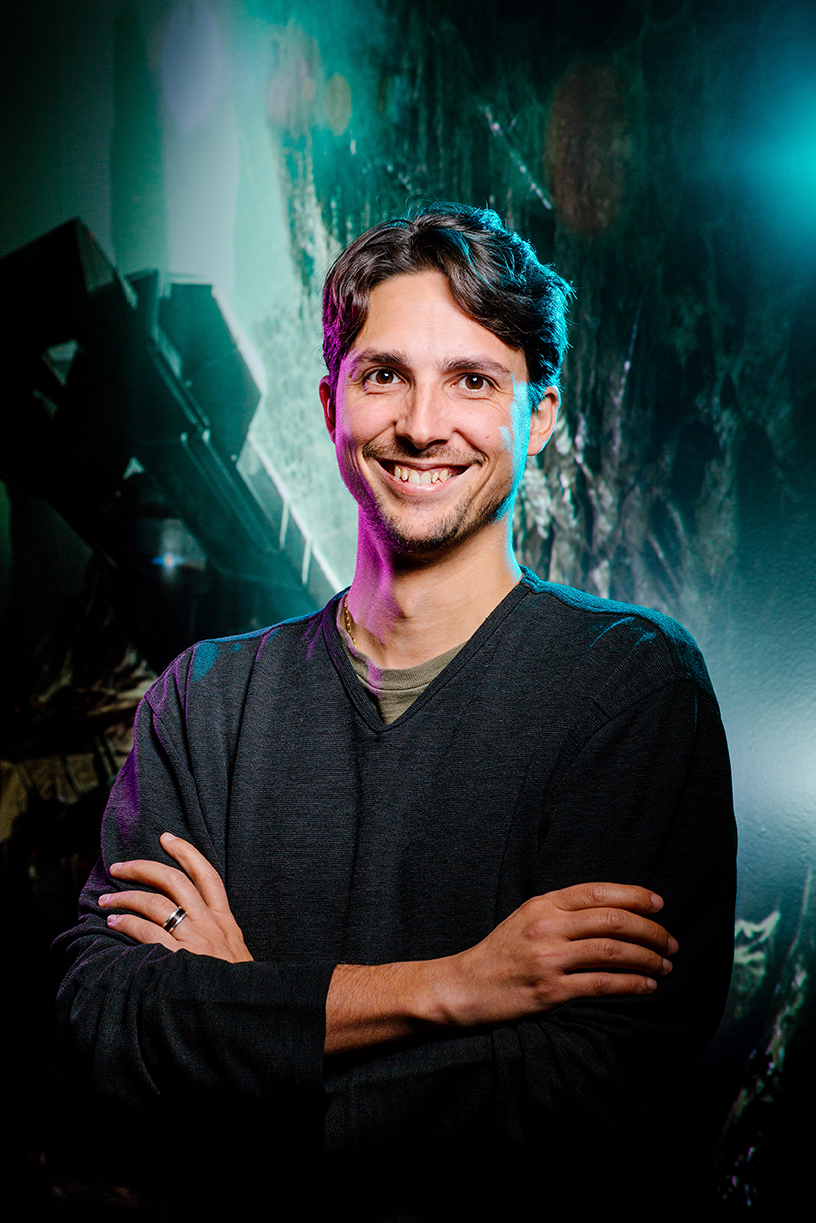 Fabrice Condominas, Producer (@Faburisu)
Fabrice Condominas, Producer (@Faburisu)
As a former designer, producer Fabrice Condominas comes equipped with the necessary vocabulary for talking to his creative teams.
“I can speak to them in their own language,” he says. “They trust that because I have been through (the development process) myself, it helps me evaluate the complexity of tasks, so when I ask for something, there’s the understanding that I won’t ask for crazy stuff. And conversely, I won’t accept any bullshit either,” he says, chuckling.
Condominas started out as a designer at Polygon Studios in France in early 2000. Later, after working as a lead designer for both LucasArts and EA, he came to BioWare for Mass Effect 3, where he oversaw the creative team for Multiplayer, and later led the production for the Omega DLC.
One of his primary roles is to bring back the original Mass Effect feel, and once again fulfill the promise of an epic journey on a galactic scale. Part of that is evaluating the features that players have fond memories of, such as the mako, and finding ways to integrate them into gameplay in a better and more versatile way.
He says it’s also key to ensure that the team is still taking the necessary risks to bring Mass Effect to the next level, delivering something fresh and engaging for players.
“If we were just doing Mass Effect 4, we would be failing in a way,” he says. “You can see even in the trilogy how the games differ from one to the next, and if we were less ambitious we could have just done the same thing and it would have worked. But we want to take the risk and deliver something new and exciting.”
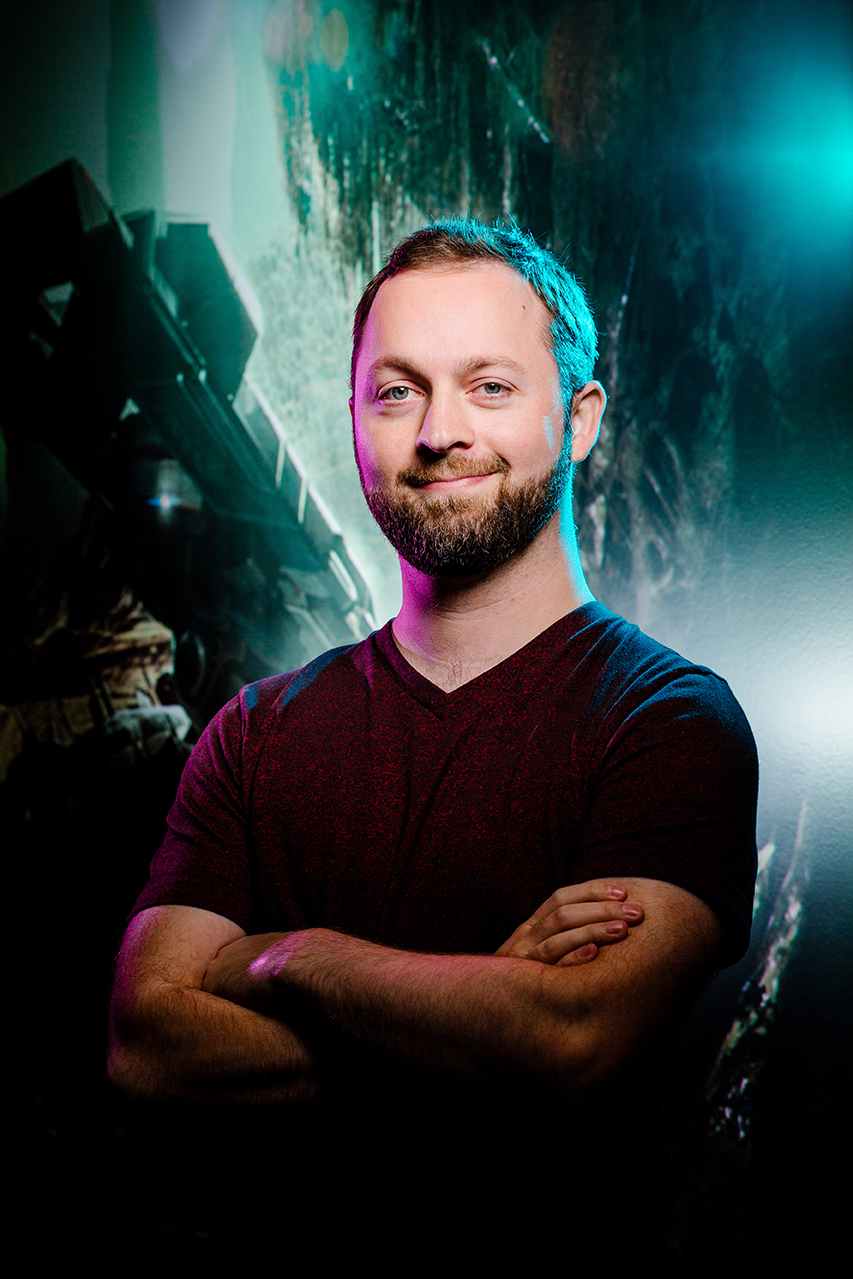 Ian Frazier, Lead Designer (@tibermoon)
Ian Frazier, Lead Designer (@tibermoon)
Think it, build it, play it – that’s lead designer Ian Frazier’s approach for the next Mass Effect. With so many creative teams on a project, he says it’s easy to lose focus and sit around bouncing big ideas off one another. That’s why when Frazier feels the team has a good idea, rather than getting it perfect on paper, he focuses on having them build it in game so they can get their hands on it and see how it handles.
“My philosophy is: build a basic prototype now, play it, and iterate on it, rather than building a giant paper cathedral of design and then trying to implement it into the game,” he says.
According to Frazier, his chief responsibility is ensuring the game is fun. What this means is hours of communication, breakdowns, playtests, and meetings with writers, artists, and designers to make sure that the levels they’re building in game make sense, and that the story is represented across all aspects of gameplay.
“We have a lot of tribal knowledge of what makes Mass Effect work,” he says. “But we also do a lot of experimentation. We try stuff, and then we do internal focus tests with fans. We’ll see their reactions, and when we see things that across the board people are getting excited about, then we know we have something good.”
Frazier’s introduction to design was in grade 6 when his father introduced him to Game-Maker. His modding experience led him to university, where he created and ran project Lazarus, which aimed to remake Ultima 5 in the Dungeon Siege engine. He has since worked as lead designer for a number of studios, overseeing titles such as Dawn of War: Soulstorm and Kingdoms of Amalur: Reckoning.
When the chance arose to come work on Mass Effect at BioWare, he says he jumped at the opportunity.
“I’m a huge fan of all things BioWare, and have been since Baldur’s Gate,” Frazier says. “Mass Effect is my favorite series, so I was extremely excited about it. They could have offered me janitor on this project and I would have taken that.”
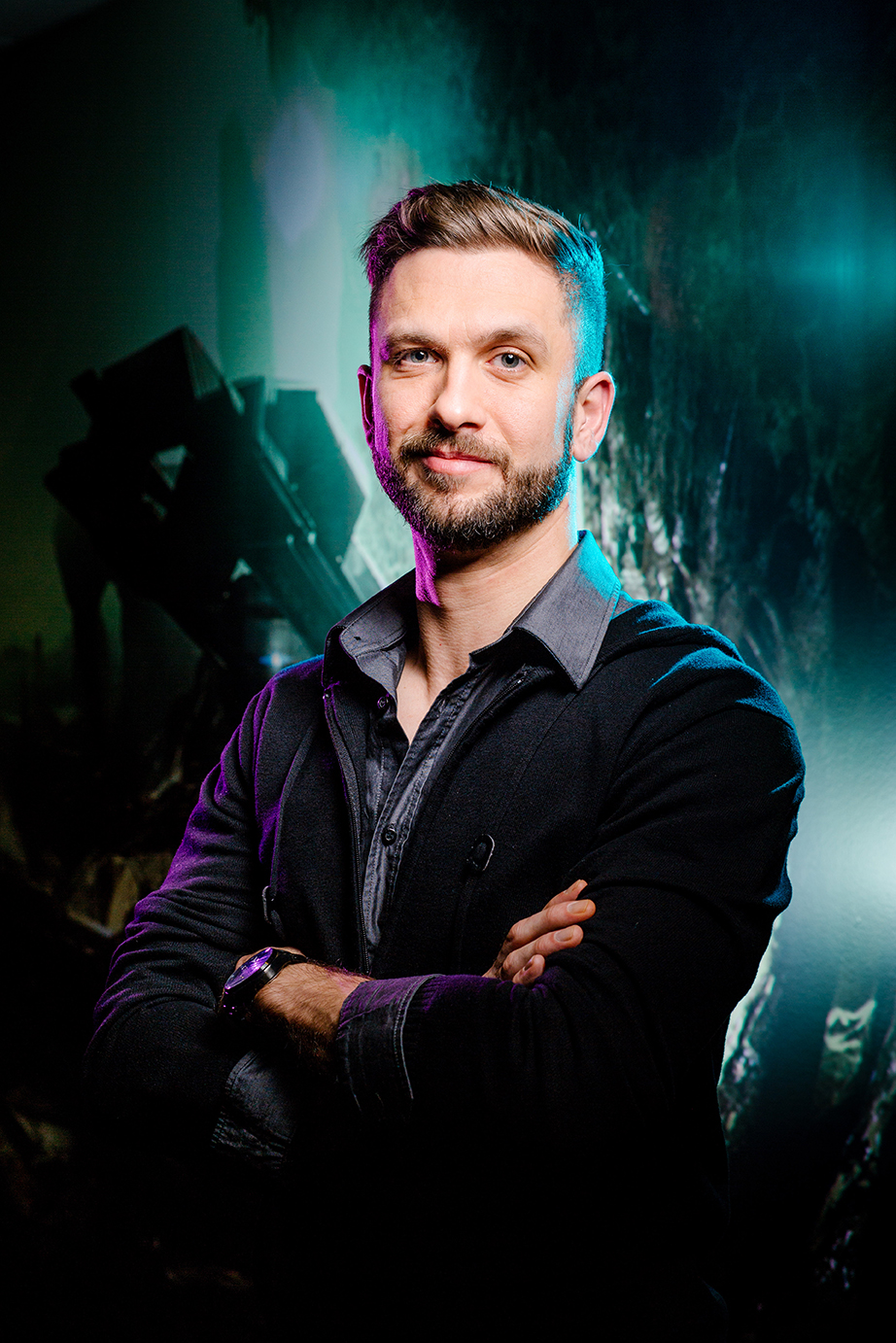 Joel MacMillan, Art Director (@MrJoelMac)
Joel MacMillan, Art Director (@MrJoelMac)
Telling stories through design has been one of art director Joel MacMillan’s primary goals. From color palettes and architecture to scars and machine marks, he wants the visuals to impart a sense of history and presence for the player, creating a deeply immersive experience.
A large part of this is developing a tactile believability, MacMillan says: a sense that what the player is seeing and encountering could actually exist in the real world.
“Without compromising aesthetics and design, we’re going in and building [the armor] practically,” he says. “So if you needed to manufacture this armor on the field for someone to use, you could.”
MacMillan has been with BioWare since 2004, working on Jade Empire as an in-game animator and later cinematic animator. From there, he went on to the Mass Effect trilogy, learning to pair choreography with camera language for a more cinematic approach to game design.
Now, with the new Mass Effect game, MacMillan and his team are creating immersive worlds that interact with the player. Using set pieces, lighting, and environmental weathering, his team is building lived-in worlds that tell their own stories. And whether it’s shattered doorways and the scars of battle, or overgrown with moss, he says the environments can convey stories about what’s happened and what may be yet to come.
Likewise, when it comes to character design, MacMillan says the look and feel should give clues to who this person is before they ever open their mouth.
“What I look for in character development are things like the kind of writing they have on their face,” he says. “Do they have pockmarks or scarring? Is it a character who needs to look a little bit sultry or enigmatic—these are the details I’m looking for.”
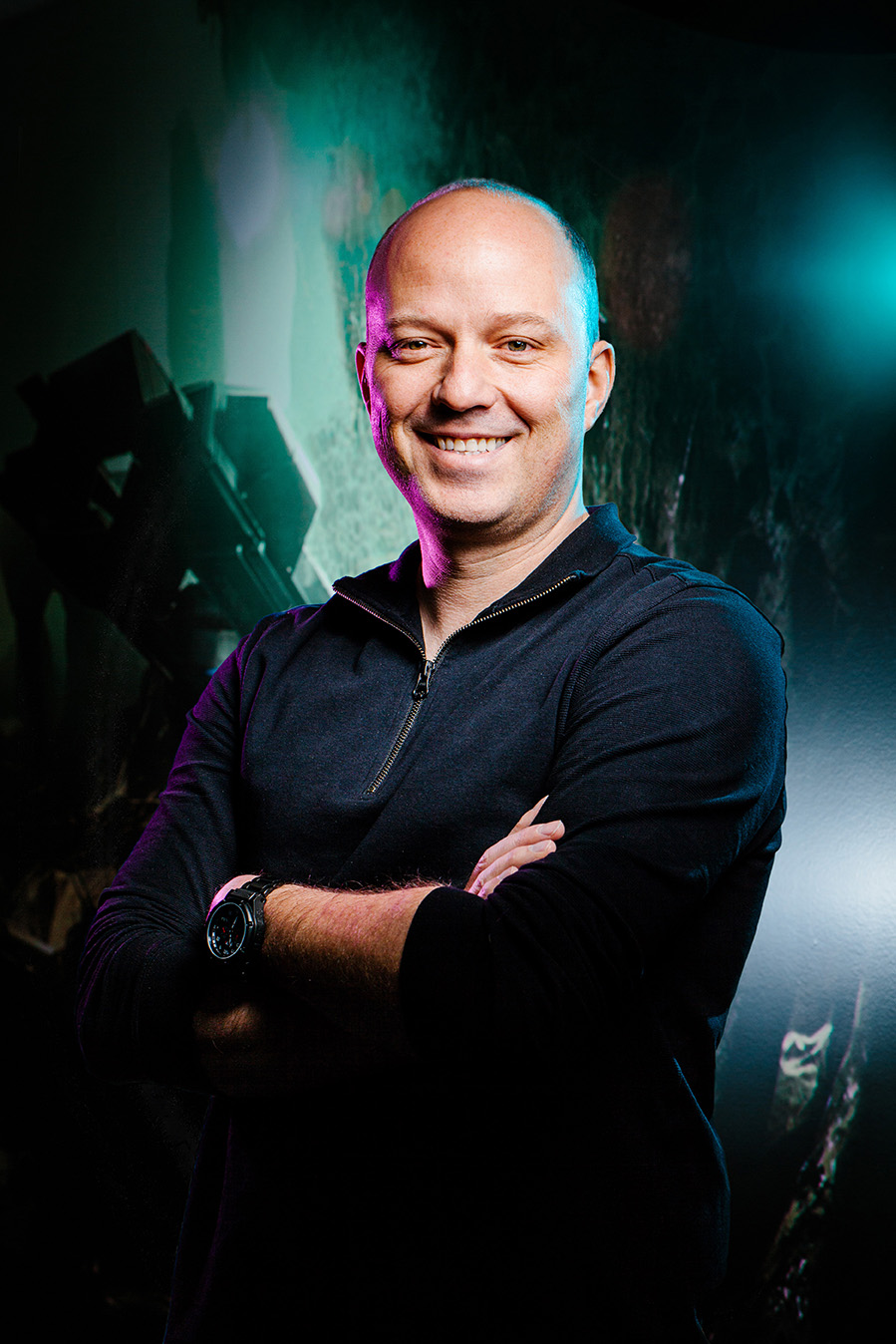 Mac Walters, Creative Director (@macwalterslives)
Mac Walters, Creative Director (@macwalterslives)
Few people know Mass Effect better than creative director Mac Walters. He spent 10 years working on the franchise, leading the writing team for the second and third installment, as well as writing several comics in the setting. And now, after a few years away working on other projects, he says returning to the Mass Effect universe feels like coming home.
As creative director, Walters works to ensure that from the second the game boots up, everything from the environments to the music feels like what the Mass Effect fans have come to know and love.
“We’re working to bring back some of that wonder and sense of exploration that we had in the original trilogy,” he says. “And while we’re making a next-gen title, we want to ensure that we’re stepping our game up so that this isn’t just Mass Effect with shiny new features. And we do that by having deep characters and a compelling story with choices that matter.”
Part of that challenge, Walters says, is creating a protagonist who isn’t walking in the shadow of Shepard. With the trilogy concluded, the team is crafting a new hero with their own storyline unique and special to them.
“With Shepard, you arrived on the scene as a hero, and you were called forward from there,” Walters says. “For the next Mass Effect, however, we’ve been looking at more of a hero’s journey: how you become a legend and what it takes to get there.”
But despite fresh features and better hardware, it’s still very much a Mass Effect game. That’s because, while the team has a lot of talented new faces, every single one of them has come to the franchise as a fan of the series with a deep respect for the universe, Walters says. This passion and wealth of experience is helping to bring Mass Effect to the next level, he says, while preserving the heart and soul of the franchise.
“We’re opening up this whole new world for players to explore,” Walters says. “I spent almost a decade working on the Mass Effect trilogy, so coming back to the universe after being away a few years has this feeling of coming home. It’s so familiar, but it also has new things, which is exciting, so I’m really looking forward to it.”
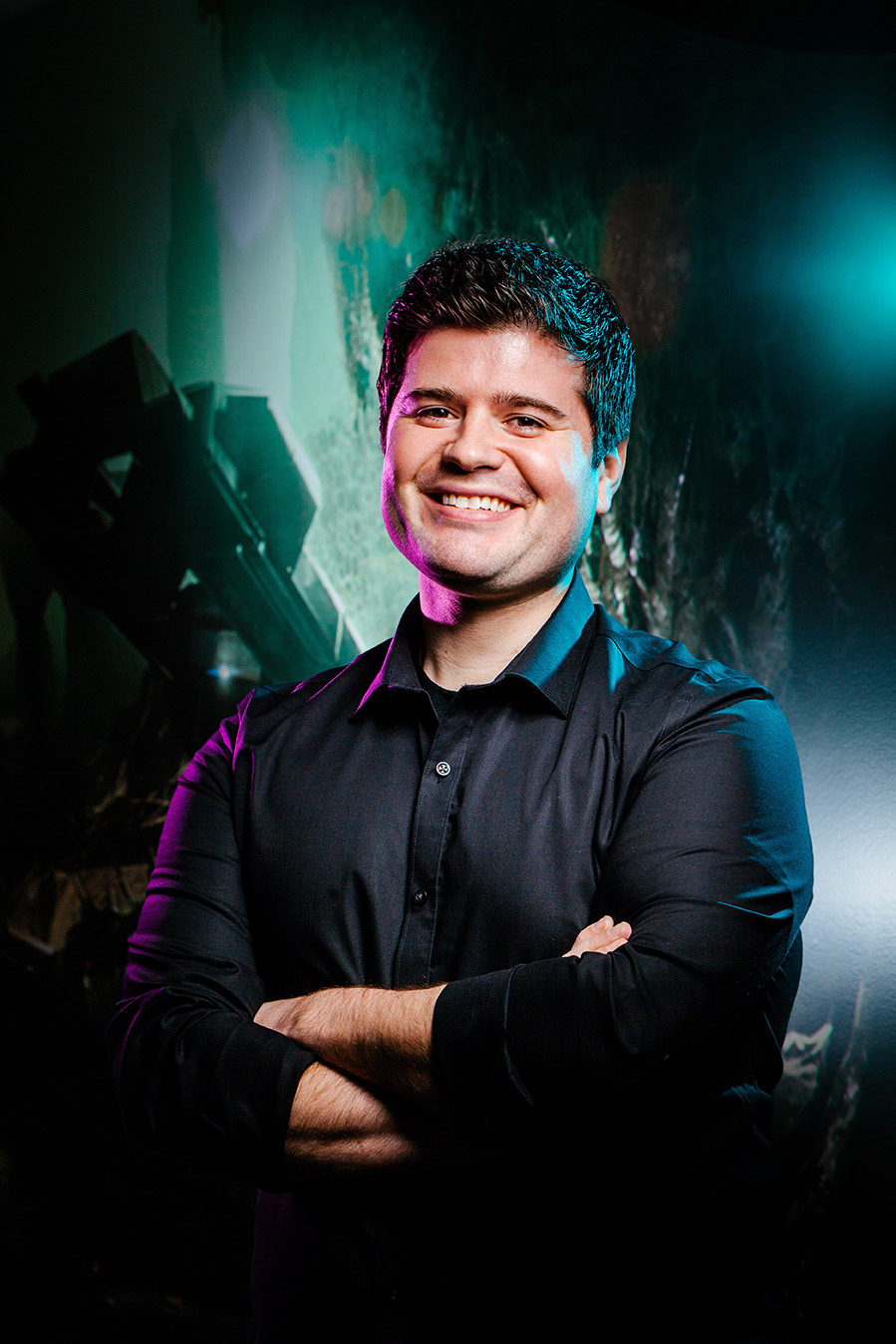 Mike Gamble, Producer (@GambleMike)
Mike Gamble, Producer (@GambleMike)
Playing the first Mass Effect is what made producer Mike Gamble alter his career path so that he ended up at BioWare. Starting out as a development manager on Mass Effect 2, Gamble has been with the franchise ever since, and now works to ensure the next game delivers the experience fans have come to know and expect.
“I live and breathe Mass Effect,” Gamble says. “It’s what I’ve done solely since I got here, so I take the player experience very seriously.”
Gamble got into game development through the modding community, working with games like Unreal Tournament, Neverwinter Nights, and Oblivion. Following a university degree in computer science, he went on to work for EA as a programmer in Vancouver before joining BioWare in 2009.
In addition to his work on 2 and 3, Gamble oversaw the release and execution of some of the most popular DLCs for the series, including both the Extended Cut and Lair of the Shadow Broker, as well as co-producing the Citadel.
One of his primary roles is to represent the voice of the fan, and advocate for what the player wants and expects from a Mass Effect game. As such, Gamble is heavily involved with gathering feedback from the community and then sharing it with the team. He also closely watches the video game landscape as a whole, monitoring how other games are received, what they do well, and what they could improve on.
Combining these perspectives through what Gamble calls a bit of a “black art,” he’s then able to advise the teams as to what players are looking for, while ensuring they stick to the core tenets of the franchise and maintain the vision of the game.
“The promise of the next Mass Effect is to give players the ability to explore and seek out new wonders for themselves,” Gamble says. “To give them the freedom to chart their own course, but to do that in the context of a great BioWare story.”
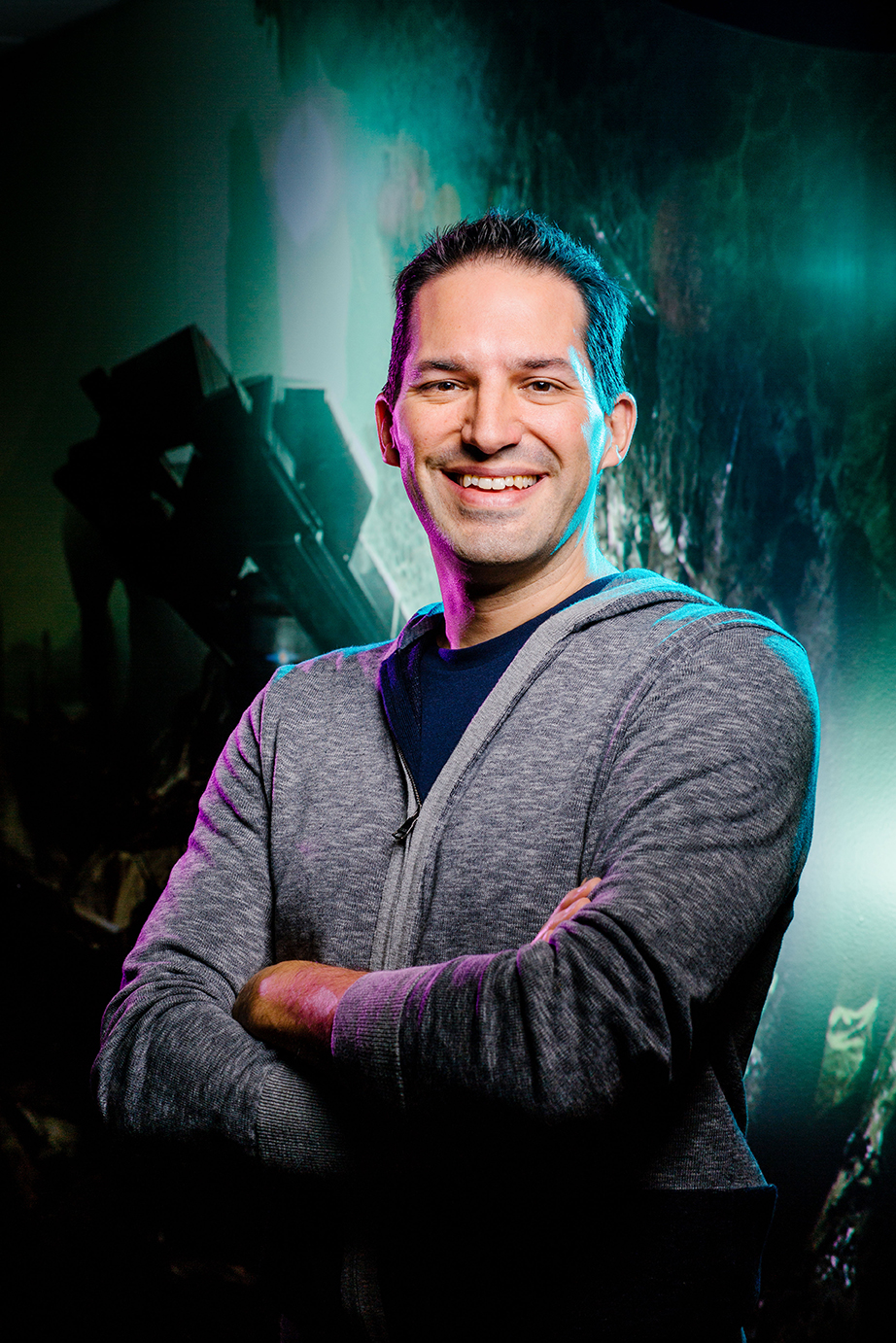 Yanick Roy, Studio Director, BioWare Montréal (@YanickRRoy)
Yanick Roy, Studio Director, BioWare Montréal (@YanickRRoy)
Part of what makes our games so special is the atmosphere within the studios themselves. That’s why studio director Yanick Roy has worked diligently to develop and maintain the culture of BioWare within our Montréal studio as it’s grown these past six years.
Since starting out as the senior project manager for Mass Effect in 2006, Roy has seen how this essential ingredient has fueled the development process. And now with the Montréal studio taking on the reigns of the franchise, he says the team has the tools they need to create what he calls a true BioWare experience.
“We’re not going to satisfy ourselves with simply sticking a BioWare logo on the box,” he says. “My favorite game of all time is KOTOR, and to this day I remember how I felt when I played that game. And to me, to be a true BioWare game, you need to touch people to that level. When you talk to them about their experience with the game years later, they need to emotionally remember what that experience was.”
From starting out as a core group of 20-30 people from the Edmonton studio, Roy has since grown the Montréal studio to the level where they are now leading development on the next Mass Effect. And while the team is taking inspiration from all of the games in the original trilogy, he says they are also paying close attention to the lessons and achievements of Dragon Age: Inquisition, as well as what is happening across the industry.
“We’re looking at what we love, what we can do, and what we can benefit from,” Roy says. “I love the mix of experience and the new blood that we’ve brought in for the upcoming game.”
“I like how that new blood is bringing to the table diverse experiences that absolutely benefit what we do, because regardless of their professional experience, they all came in as huge fans of our games. Whatever new ideas or elements they inject into our process, it’s always done with the utmost respect not only for what we achieved in the past, but for what our fans expect us to do next.”
